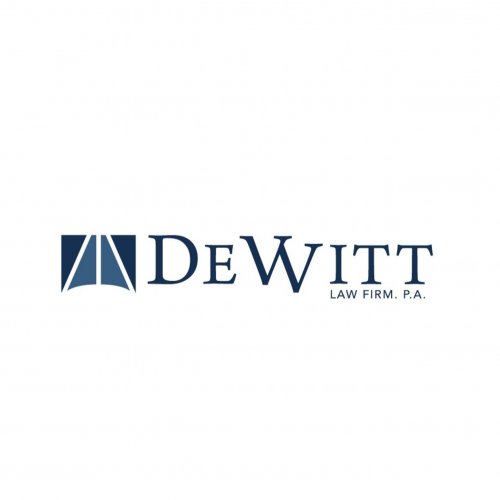Best Child Abuse Lawyers in Tampa
Share your needs with us, get contacted by law firms.
Free. Takes 2 min.
Free Guide to Hiring a Family Lawyer
List of the best lawyers in Tampa, United States
About Child Abuse Law in Tampa, United States
Child abuse is a serious issue that affects the well-being and safety of children in Tampa, United States. Child abuse refers to any act, or failure to act, that results in harm or threat of harm to a child's health or welfare. This can include physical abuse, sexual abuse, emotional abuse, neglect, or exploitation. The law seeks to protect children from abuse and holds those responsible accountable for their actions.
Why You May Need a Lawyer
Seeking legal help is crucial in situations involving child abuse. Some common instances where you may need a lawyer include:
- If you suspect a child is being abused and want to report it.
- If you are falsely accused of child abuse and need to defend yourself.
- If you are a parent involved in a child custody case where abuse is alleged.
- If you are an advocate for a child and want to ensure their rights are protected.
Local Laws Overview
In Tampa, United States, several local laws address child abuse. The key aspects of these laws include:
- Tampa follows the Florida State laws concerning child abuse.
- Child abuse is a criminal offense and can result in severe penalties, including fines, imprisonment, and loss of parental rights.
- Florida law requires certain professionals, such as teachers and healthcare providers, to report suspected child abuse to the appropriate authorities.
- Tampa has specialized agencies that investigate child abuse cases, such as the Department of Children and Families (DCF) and local law enforcement agencies.
Frequently Asked Questions
Q: How can I report suspected child abuse in Tampa?
A: If you suspect child abuse, you must immediately report it to the Florida Abuse Hotline by calling 1-800-96-ABUSE (1-800-962-2873). The hotline operates 24/7 and your report can be anonymous.
Q: What happens after I report child abuse?
A: Once a report is made, the Florida Abuse Hotline assesses the situation and, if necessary, notifies the appropriate authorities who will conduct an investigation. The goal is to ensure the safety and well-being of the child.
Q: Can I remain anonymous when reporting child abuse?
A: Yes, it is possible to make an anonymous report. However, providing your name and contact information can be helpful if further information or testimony is needed during the investigation or legal proceedings.
Q: How can I protect my child if I suspect abuse but have no definite proof?
A: If you have reasonable suspicion that your child is being abused, consult with a lawyer who specializes in child abuse cases. They can guide you on the appropriate steps to take to ensure the safety of your child.
Q: What should I do if I am falsely accused of child abuse?
A: If you are falsely accused of child abuse, it is important to seek legal representation immediately. A lawyer experienced in child abuse cases can help defend your rights and guide you through the legal process.
Additional Resources
If you need legal advice or further assistance regarding child abuse, consider reaching out to the following resources:
- Florida Department of Children and Families (DCF) - Website: https://www.myflfamilies.com/
- The Florida Bar Lawyer Referral Service - Website: https://www.floridabar.org/public/lrs/
- Childhelp National Child Abuse Hotline - Phone: 1-800-4-A-CHILD (1-800-422-4453)
Next Steps
If you require legal assistance in a child abuse case, here are the recommended next steps:
- Gather any evidence or documentation related to the child abuse.
- Report the suspected abuse to the Florida Abuse Hotline at 1-800-96-ABUSE (1-800-962-2873).
- Contact a lawyer specializing in child abuse cases to discuss your situation and seek legal advice.
- Cooperate with any investigations conducted by the appropriate authorities.
- Follow the guidance of your lawyer and take necessary legal steps to protect the child's rights and safety.
Lawzana helps you find the best lawyers and law firms in Tampa through a curated and pre-screened list of qualified legal professionals. Our platform offers rankings and detailed profiles of attorneys and law firms, allowing you to compare based on practice areas, including Child Abuse, experience, and client feedback.
Each profile includes a description of the firm's areas of practice, client reviews, team members and partners, year of establishment, spoken languages, office locations, contact information, social media presence, and any published articles or resources. Most firms on our platform speak English and are experienced in both local and international legal matters.
Get a quote from top-rated law firms in Tampa, United States — quickly, securely, and without unnecessary hassle.
Disclaimer:
The information provided on this page is for general informational purposes only and does not constitute legal advice. While we strive to ensure the accuracy and relevance of the content, legal information may change over time, and interpretations of the law can vary. You should always consult with a qualified legal professional for advice specific to your situation.
We disclaim all liability for actions taken or not taken based on the content of this page. If you believe any information is incorrect or outdated, please contact us, and we will review and update it where appropriate.








